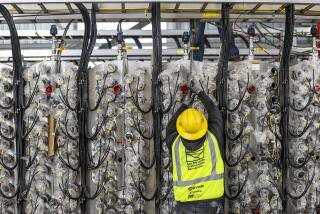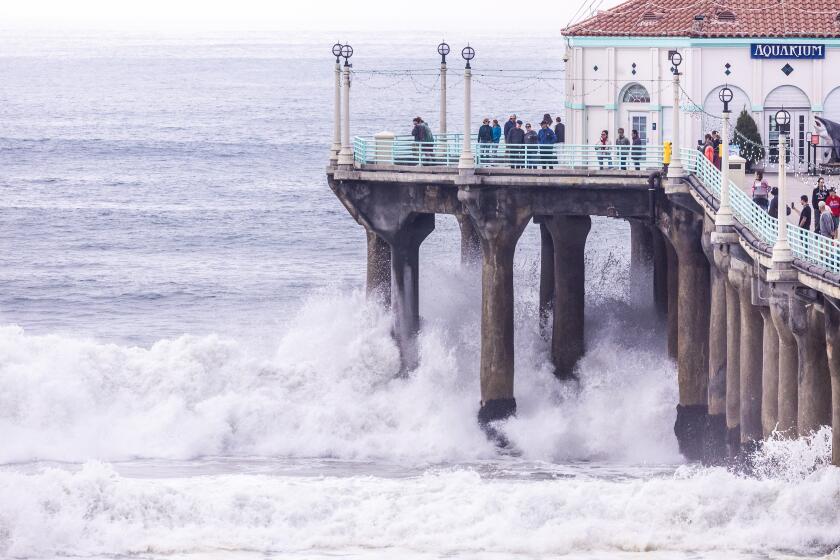Panel OKs Drilling Field in Sun Valley to Replace Tainted N. Hollywood Wells
Despite objections from nearby residents, a Los Angeles City Council committee Monday approved drilling a dozen water wells in Sun Valley to replace contaminated North Hollywood wells.
But before approving the $33-million Tujunga Well Field Project, the council’s Environmental Quality and Waste Management Committee unanimously recommended strict water-quality testing for the wells.
The committee expressed concern that some of the water could become contaminated by toxic wastes from the defunct Sheldon-Arleta Landfill, which is 3,000 feet east of the wells.
Several Sun Valley residents also raised the specter of contaminated drinking water from the landfill.
Additionally, Alexander M. Man, a spokesman for FOCUS (Federation of Organizations for Conserving Urban Space)--a Santa Monica-based environmental group--argued that pesticides, mercury and other contaminants known to be in the landfill “will in time migrate to the well field” and threaten the city’s drinking water supply. Water from the project would be mixed with existing supplies serving the entire city.
Others complained that a 3-million-gallon water storage tank, to be built as part of the project, will visually blight their residential area and predicted that noise from the pumps would disturb their neighborhood and lower property values.
But Duane L. Georgeson, Department of Water and Power assistant general manager, assured council members that the pumps will be installed as far as possible from homes and that department engineers had tested repeatedly for landfill contamination and found none.
He acknowledged, however, that in the 50- to 100-year life of the wells, contamination could be a problem that the city would have to deal with.
But in Los Angeles, there no longer are any “easy places to get water of pristine purity,” Georgeson said.
City Councilwoman Ruth Galanter agreed, saying, “We don’t have a lot of options anymore when it comes to finding drinking water.”
The project was approved in July by the city’s Planning Commission. It next goes to the council’s Planning and Land Use Management Committee and then to the full council.
More to Read
Sign up for Essential California
The most important California stories and recommendations in your inbox every morning.
You may occasionally receive promotional content from the Los Angeles Times.










